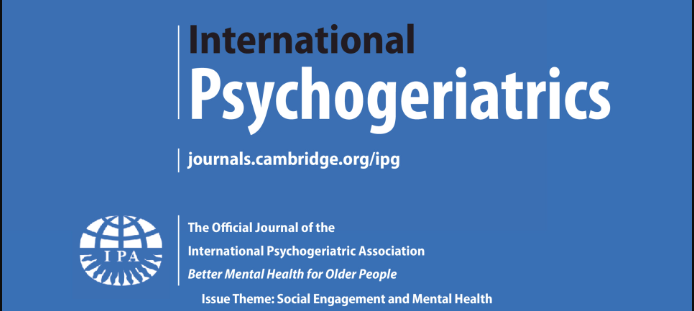P160:针对痴呆症神经精神症状的电休克疗法:荷兰医生调查
IF 4.6
2区 医学
Q1 GERIATRICS & GERONTOLOGY
引用次数: 0
摘要
目的:神经精神症状(NPS)在痴呆症患者中很常见,并具有负面影响。常用的药物和心理干预并不总是有效,而且神经精神症状可能会变得难治。电休克疗法(ECT)对(严重的)躁动和攻击行为可能有效,而且耐受性良好。然而,这种疗法在荷兰的应用似乎很有限。方法:2020 年 7 月对荷兰的老年病学家、老年护理医生和老年精神病学家进行了一项调查研究。在专业协会的电子通讯中发布在线邀请,或直接发送至其中一位作者的专业网络(如为老年精神病学家)。调查问卷包括20个封闭式和开放式问题,内容涉及人口统计学特征、(考虑)转诊/应用电痉挛疗法的经历以及对电痉挛疗法的态度。在这八名受访者中,有两名患者因抑郁行为(有时伴有躁动)而被转诊。缺乏经验、电痉挛疗法未被纳入这一适应症的指南、不熟悉可能的(副)影响和风险、伦理和实际问题是受访者不考虑电痉挛疗法的主要原因。结论:受访者对 ECT 并不持否定态度,但由于缺乏认识和知识以及与应用 ECT 相关的伦理和实际问题,他们很少考虑 ECT。虽然我们的调查响应度较低,受访者人数有限,但我们确实感到,在荷兰,ECT 可能是姑息镇静的一种替代方法,在难治性 NPS 病例中被偶然使用。因此,进一步探索对难治性鼻咽癌应用电痉挛疗法的支持基础和可能性可能是值得的。本文章由计算机程序翻译,如有差异,请以英文原文为准。
P160: Electroconvulsive therapy for neuropsychiatric symptoms in dementia: survey among Dutch physicians
Objective:Neuropsychiatric symptoms (NPS) are common in people with dementia and have a negative effect. Commonly used pharmacological and psychosocial interventions are not always effective and NPS can become refractory. Electroconvulsive therapy (ECT) may be effective for (severe) agitation and aggression and is well tolerated. Nevertheless, its application seems limited in the Netherlands. We explored the application of and attitudes of physicians towards ECT for (severe) NPS in older people with dementia in the Netherlands.Methods:A survey study among geriatricians, elderly care physicians and old-age psychiatrists in the Netherlands in July 2020. An online invitation was included in the digital newsletter of the professional society or directly sent to the professional network of one of the authors (in case of old-age psychiatrists). The questionnaire included 20 closed- and open ended questions on demographic characteristics, experiences with (consideration of) referral for/application of ECT and attitudes towards ECT.Results:Sixty-one respondents completed the survey, eight had ever considered ECT. Two of these eight referred patient(s) for depressive behavior, sometimes combined with agitation. Lack of experience, ECT not being included in guidelines for this indication, unfamiliarity with possible (side) effects and risks, ethical and practical issues were the main reasons of the respondents for not considering ECT. Most respondents were open to referring patients with dementia for ECT to treat (severe) NPS, specifically in case of refractory symptoms.Conclusion:Respondents are not negative about ECT, yet rarely consider it due to lack of awareness and knowledge and the ethical and practical issues related to its application. Although the response to our survey was low and the number of respondents is limited, we do feel that ECT may be an alternative for palliative sedation, which is used incidentally in cases of refractory NPS in the Netherlands. Further exploring the support base and possibilities for application of ECT-treatment for refractory NPS might therefore be worthwhile.
求助全文
通过发布文献求助,成功后即可免费获取论文全文。
去求助
来源期刊

International psychogeriatrics
医学-精神病学
CiteScore
9.10
自引率
8.60%
发文量
217
审稿时长
3-6 weeks
期刊介绍:
A highly respected, multidisciplinary journal, International Psychogeriatrics publishes high quality original research papers in the field of psychogeriatrics. The journal aims to be the leading peer reviewed journal dealing with all aspects of the mental health of older people throughout the world. Circulated to over 1,000 members of the International Psychogeriatric Association, International Psychogeriatrics also features important editorials, provocative debates, literature reviews, book reviews and letters to the editor.
 求助内容:
求助内容: 应助结果提醒方式:
应助结果提醒方式:


